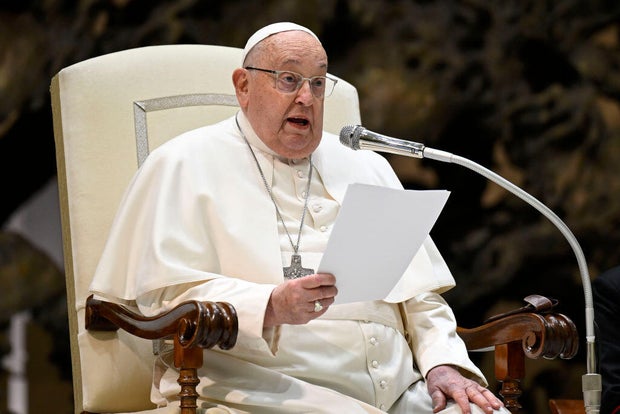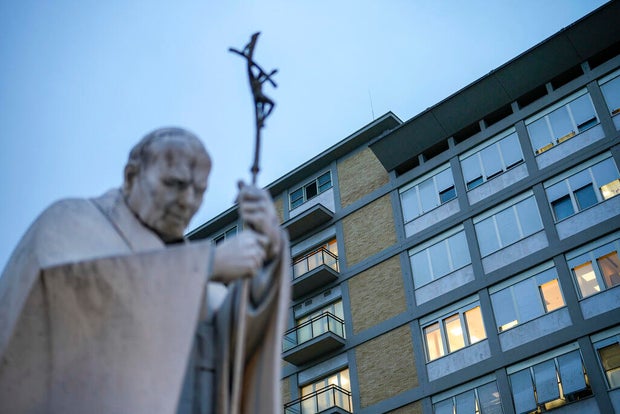Pope Francis slept well as he continues recovery after hospitalization, Vatican says

Pope Francis slept well during a first night in the hospital after being admitted with a respiratory tract infection, the Vatican said Saturday.
The 88-year-old pontiff ate breakfast Saturday morning and read the newspapers while continuing his drug therapy, spokesman Matteo Bruni said.
The Argentine pope was admitted to Rome’s Gemelli hospital on Friday after a weeklong bout of bronchitis worsened.
Francis, who is prone to respiratory infections in winter, was diagnosed with bronchitis on Feb. 6.
Simone Risoluti / Getty Images
Before his hospitalization, Francis had continued to hold daily audiences in his Vatican hotel suite, attended his general audience on Wednesday, and even presided at an outdoor Mass last Sunday. He had, however, handed off his speeches to an aide to read aloud, saying he was having trouble breathing.
This is the pope’s fourth hospitalization since his 2013 election and raised questions about his increasingly precarious health.
Preliminary tests showed he had a respiratory tract infection and a slight fever. The Vatican canceled his audiences through Monday at least.
Gregorio Borgia / AP
Francis had part of one lung removed as a young man and has battled other health problems.
He had 13 inches of his large intestine removed in 2021 because of a narrowing of the colon. He had further abdominal surgery in 2023 to remove intestinal scar tissue and repair a hernia. He uses a wheelchair, walker or cane when moving around his apartment and recently fell twice, hurting his arm and chin.
He revealed that during a 2023 hospitalization, he was actually diagnosed with “an acute and strong pneumonia, in the lower part of the lungs.”
Sometimes bronchitis can lead to pneumonia, a deeper and far more serious infection of the lungs’ air sacs. Doctors may detect pneumonia by listening for a crackling or whistling sound in the lungs while the patient breathes, but often other tests are needed including a chest X-ray and pulse oximetry that measures how much oxygen is in the blood. Treatment varies by severity but can include providing oxygen through a nasal tube or mask, intravenous fluids – and treatment of the underlying cause of the infection.






